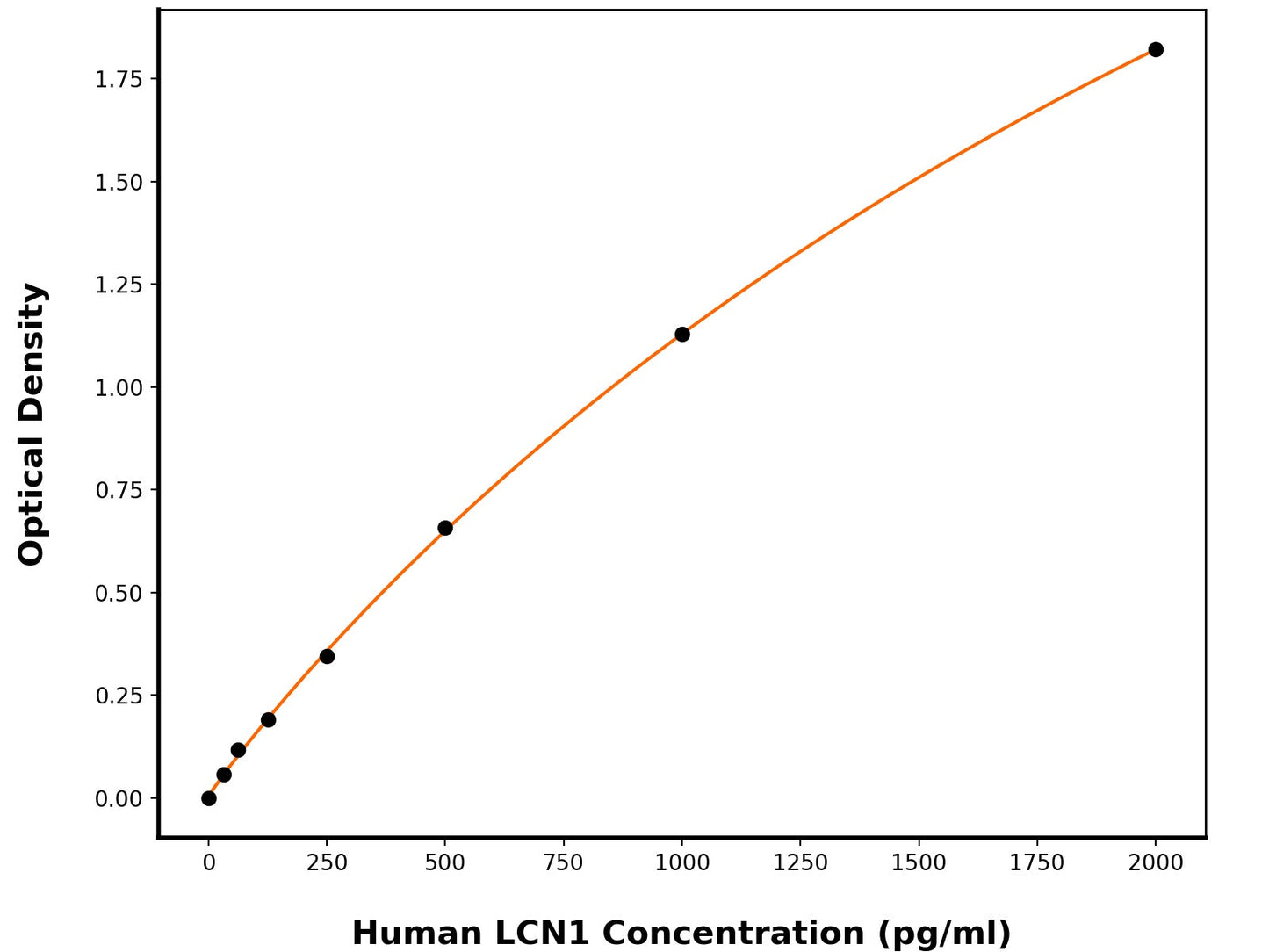1
/
of
1
Human Lipocalin-1 (LCN1) ELISA Kit
Human Lipocalin-1 (LCN1) ELISA Kit
This ELISA kit is designed to detect Human Lipocalin-1 (Human LCN1). The assay plate has been pre-coated with mouse anti-Human LCN1 monoclonal antibody. When the sample containing LCN1 is added to the plate, it binds to the antibodies coated on the wells. Then, a horseradish peroxidase conjugated mouse anti-Human LCN1 Antibody is added to the wells and binds to LCN1 in the sample. After washing the wells, substrate solutions are added, and the color intensity is directly proportional to the amount of Human LCN1 present. The reaction is stopped by adding an acidic stop solution, and the absorbance is measured at 450 nm.
Catalog No:
BPE206
Regular price
$754.00 USD
Regular price
$580.00 USD
Sale price
$754.00 USD
Unit price
/
per
2 weeks
Couldn't load pickup availability
Product Details
Species Reactivity
Human
Sensitivity
5.63 pg/mL
Detection Range
31.25-2000 pg/mL
Sample Type
Serum, plasma, cell culture supernates
Incubation(s)
3.5 hour(s)
Research Areas
Cell Biology, Neuroscience
Background
Lipocalin-1, also known as Von Ebner gland protein, VEG protein, Tear Prealbumin, VEGP, Tear lipocalin, and LCN1 is a secreted protein that belongs to the calycin superfamily and Lipocalin family. Human Lipocalin-1 / VEGP was originally described as a major protein of human tear fluid, which was thought to be tear specific. Lipocalin-1 / VEGP is identical to lingual von Ebner's gland protein and is also produced in the prostate, nasal mucosa, and tracheal mucosa. Homologous proteins have been found in the rat, pig, and probably dog and horse. Lipocalin-1 / VEGP is an unusual lipocalin member, because of its high promiscuity for relative insoluble lipids and binding characteristics that differ from other members. Lipocalin-1 / VEGP acts as the principal lipid-binding protein in tear fluid, a more general physiological function has to be proposed due to its wide distribution and properties. Lipocalin-1 / VEGP would be ideally suited for scavenging of lipophilic, potentially harmful substances and thus might act as a general protection factor of epithelia. Lipocalin-1 / LCN1 could play a role in taste reception. It could be necessary for the concentration and delivery of sapid molecules in the gustatory system. Lipocalin-1 / LCN1 can bind various ligands, with chemical structures ranging from lipids and retinoids to the macrocyclic antibiotic rifampicin and even to microbial siderophores. It exhibits an extremely wide ligand pocket.
Shipping Condition
Shipped on cold gel packs.
Storage Condition and Shelf Life
This product can be stored at 2-8C.
Analyte
Lipocalin-1
Regulatory Status
For Research Use Only

